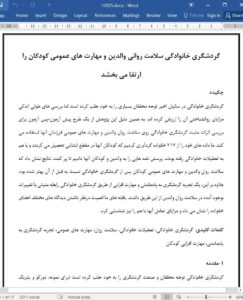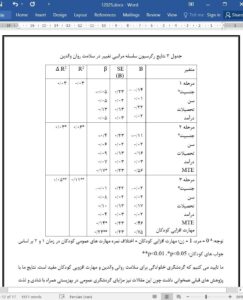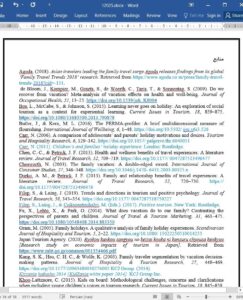Abstract
Family tourism has gained increased attention from researchers in recent years; however, few longitudinal studies have examined the psychological benefits of family tourism. Therefore, this study employed a pretest-posttest design to examine the beneficial effects of family tourism on parents’ well-being and their children’s generic skills. We collected data from 217 families with elementary school children who went on family holidays, administering questionnaires to both parents and children. The results showed that parents’ well-being and children’s generic skills increased from before to after the family tourism experience. Moreover, a memorable tourism experience and children’s skill development through family tourism were positively associated with changes in parents’ well-being through family tourism. Our findings highlight the importance of considering multiple perspectives from family members and identify the benefits of their interactions.
1. Introduction
Family tourism has gained increasing attention from researchers as well as the tourism industry (e.g., Durko & Petrick, 2013; Lehto, Choi, Lin, & MacDermid, 2009; Li, Lehto, & Li, 2020; Schanzel, ¨ Yeoman, & Backer, 2012). According to Agoda’s “Family Travel Trends 2018” survey (2018), the market for family tourism has increased, especially in Asian countries. For example, Japan’s 2018 National Tourism Survey showed that family tourism is one of the most popular types of travel, comprising 19.64% of domestic tourism and 36.06% of overseas tourism among Japanese residents (Japan Tourism Agency, 2020). Moreover, many travel agencies developed a package tour called tabi-iku, a form of family tourism aimed at promoting children’s personal development, that is gaining popularity among Japanese families (Morishita, 2013). Thus, research that investigates family tourism to increase the understanding of the family tourism market is needed.










